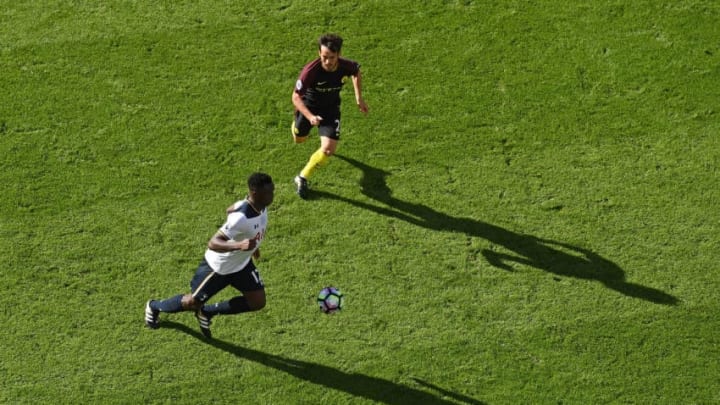Tottenham’s reported struggles with re-signing Hugo Lloris and Harry Kane can be reasonably traced back to one moment: the signing of Moussa Sissoko.
The club announced the acquisition of the 27-year-old Frenchman in the last moments of the summer transfer window. The fee was high — indeed, the £30 million set a new club transfer fee record — but compared to the amount spent by Tottenham’s competition it seemed fairly reasonable.
Sissoko, in theory, represented that last piece of a puzzle Daniel Levy and Mauricio Pochettino spent the summer constructing. With all of last term’s ideal starting XI kept intact, Tottenham only needed to add depth to a few key positions. With Vincent Janssen they got their second striker. With Victor Wanyama they got a proper defensive midfielder. With Georges-Kévin Nkoudou they got their young, promising winger.
The only hole left to fill in those dying hours of the transfer window was a versatile, direct player to supplement and complement Tottenham’s attacking midfield. Someone who could just as easily fill in for Érik Lamela as Dele Alli or Mousa Dembélé. They found that player in Sissoko.
Newcastle held all the cards in the deal after Sissoko’s masterful performance for France in the Euros. His on-and-off record at club level was, for the moment, easily ignored. Though Tottenham waxed and waned, competing interest from Everton eventually forced Levy’s hand.
More from Tottenham News
- Storybook ending after difficult period for Tottenahm’s Richarlison
- Tottenham comeback showcased invaluable intangible Ange has cultivated
- Tottenham player ratings in 2-1 comeback win over Sheffield United
- Tottenham projected starting 11 for Sheffield United
- Tottenham’s Richarlison says he’s going to seek psychological help
The deal was remarkable for more than just the initial fee. More recent reports suggest that Sissoko joined the club with a promised £95,000 a week salary. That’s serious money for a player that wasn’t even expected to start every week.
In hindsight, the deal feels like a panic buy. Levy pushes deals to their logical limits, but he usually doesn’t pull the trigger if the terms don’t tip in Tottenham’s favor.
Just think back to his refusal to work with West Brom over Saido Berahino just a year prior to the Sissoko transfer. Tottenham needed a striker then more than they needed another midfielder in August, and yet Levy refused to budge. Perhaps Pochettino’s growing role in transfer decisions played a part, but that seems only to make the deal seem even more confounding.
Overpaying for a player isn’t anything new or novel for Tottenham, of course. What is remarkable though is that Tottenham would put so much on the table for Sissoko even as the club sought to negotiate new contracts for the likes of Christian Eriksen, Kane and Lloris.
How can any one of those players reasonably look at Sissoko — a player whose quality is at best sporadic — and not feel that they are owed more than his £95,000 a week?
Next: Tottenham: Harry Kane Relaxed About Future
And yet such requests have reportedly been denied outright by Levy. Eriksen’s contract was agreed to in September regardless, but now the club faces the prospect of losing Lloris and Kane because of this strange double standard.
Sissoko’s rumored wages set a far too high standard for other, better players on this Spurs team. Panic buy or not, Levy needs to be realistic with the situation as it is. Kane and Lloris — not to mention Jan Vertonghen and Érik Lamela — are far more valuable assets to this team. They need to be rewarded accordingly. It’s hardly not their fault that Levy agreed to preposterous terms for Sissoko.
